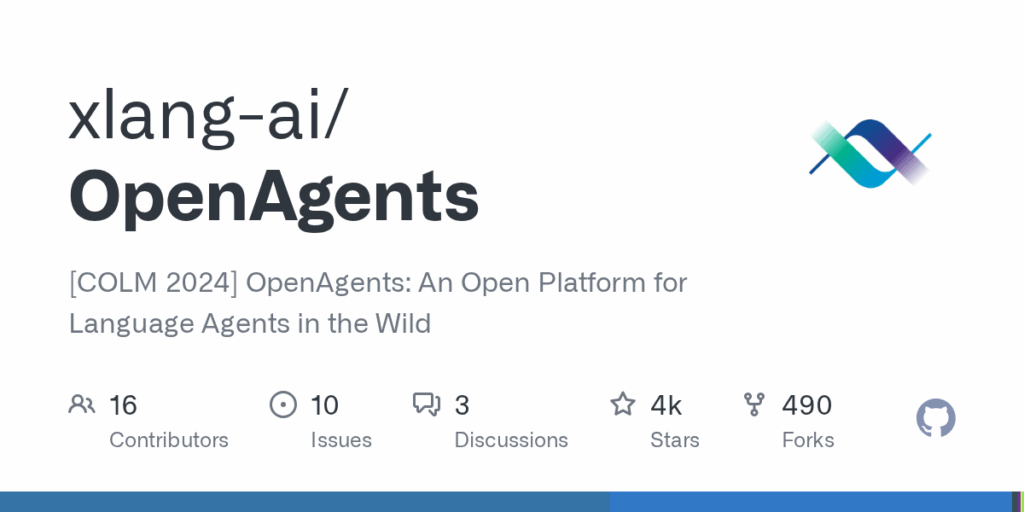OpenAgents
Basic Information
OpenAgents is an open platform that provides code and runnable examples to host, run, and extend language-based agents for real-world tasks. The repository implements and documents three ready agents — a Data Agent for code-driven data analysis, a Plugins Agent that integrates with a large collection of third-party tools, and a Web Agent that automates browsing via a Chrome extension. The project supplies a full-stack reference implementation including a Flask backend, a Next.js/React frontend with a chat web UI, adapters and memory modules, and guidance for local and Docker deployment. It targets both general users who want interactive agent demos and developers or researchers who want a modular foundation to build, evaluate, and deploy new language agents and components.








